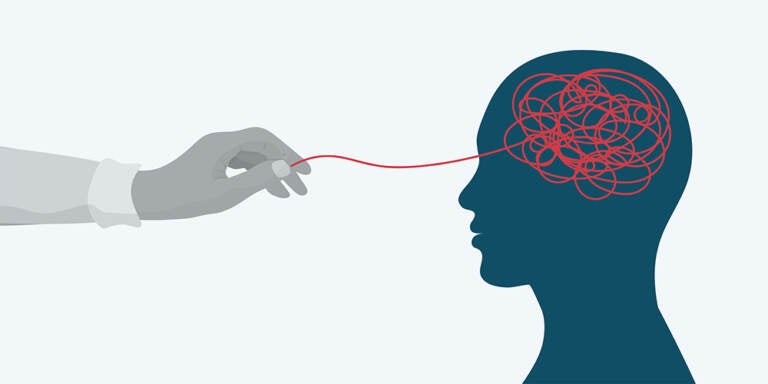Talking Therapy
Listen 51:54
(melitas/Big Stock)
When we’re stressed, upset, feeling down, or off, most of us have things we do to decompress. Things we find therapeutic — maybe it’s listening to music, working with our hands, or unplugging for a while. But sometimes these mood boosters don’t do the trick and it seems like it’s time to talk to a professional.
During the pandemic, more people sought counseling than ever before. But the process of therapy can still seem a bit opaque. What exactly happens in therapy? How does it work? And which approach is right for which issues? On this episode, we get inside the heads of therapists to find out how they ply their craft, and what it takes to really feel better.
We hear stories about what happened when a city took a bold step toward providing free, virtual mental health services to its residents. Also: what happens when politics and therapy collide; how Freud’s brainchild — psychoanalysis — is still relevant; and what it’s like to grow up as the child of two shrinks.
Also heard on this week’s episode:
- We talk with veteran relationship therapist Argie Allen-Wilson about who should get therapy and why, how long therapy should last, and how to break up with your therapist. Allen-Wilson is CEO and co-founder of Family and Individual Therapeutic Healing (or F.A.I.T.H.) Inc. and Connections Matter.’
- Freud may have given rise to modern talk therapy — but these days, a lot of his ideas, from penis envy to the Oedipal complex, have fallen out of favor. So where does that leave modern psychoanalysis? Reporter Liz Tung talks with psychoanalysts Jonathan Shedler and Steven Kuchuck. For more on psychoanalysis, see Kuchuck’s new book “The Relational Revolution in Psychoanalysis and Psychotherapy,” and Shedler’s “That Was Then, This is Now: Psychoanalytic Psychotherapy for the Rest of Us.”
- From the time she was a kid, Dara Lovitz had one big fear: vomiting. But when she became a mother, she knew things had to change. Lovitz explains her journey, step by step, from phobia to acceptance through exposure therapy. Her book, with psychologist David Yusko, is “Gag Reflections: Conquering a Fear of Vomit Through Exposure Therapy.”
- Can you imagine having a therapist around 24/7 — analyzing your behavior, your moods, maybe even your dreams? For journalist Micah Toub, that was just normal life growing up as the son of two shrinks. Nichole Currie reports. Toub’s book is “Growing Up Jung: Coming of Age as the Son of Two Shrinks.”
This episode was first broadcasted on January 7, 2022
Segments from this episode
WHYY is your source for fact-based, in-depth journalism and information. As a nonprofit organization, we rely on financial support from readers like you. Please give today.






